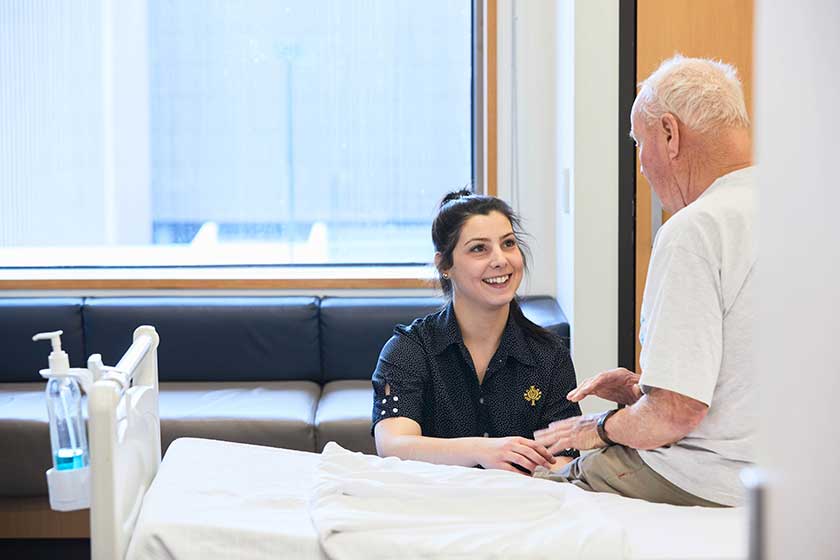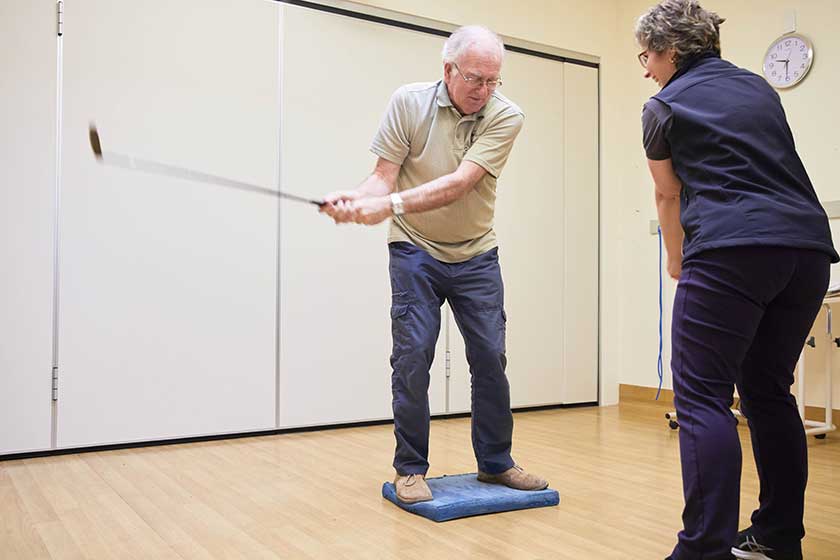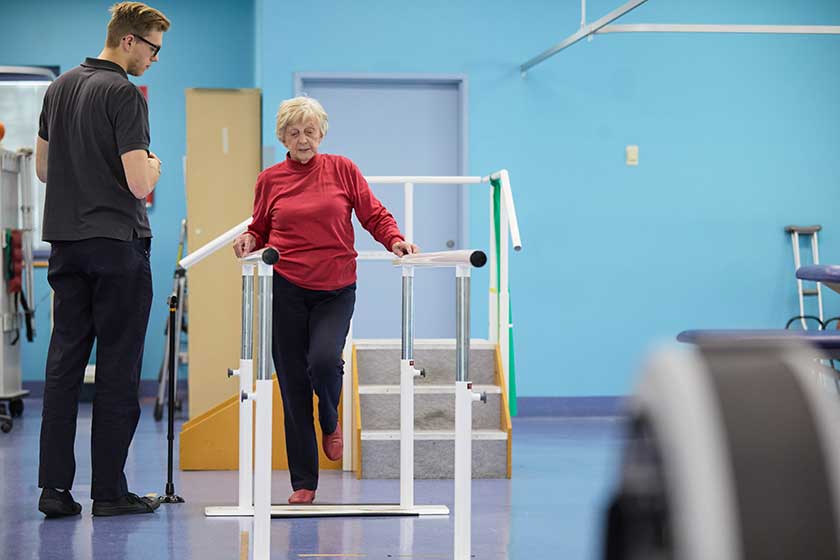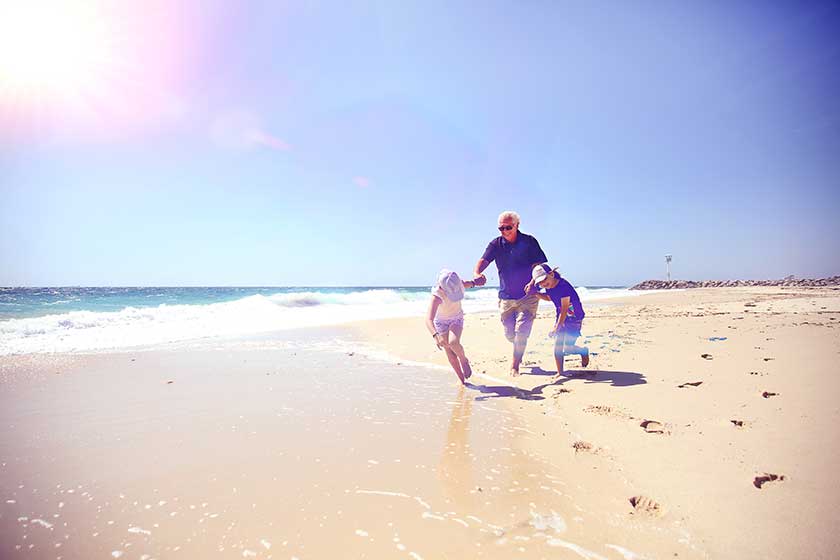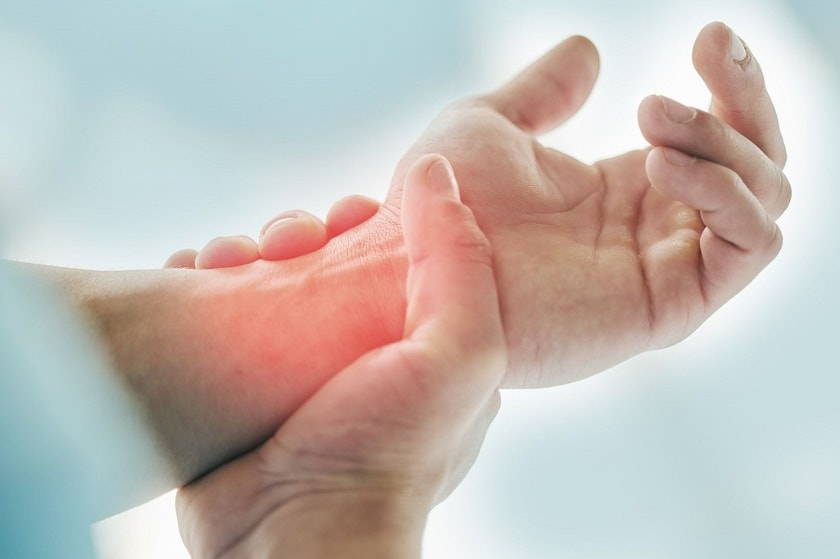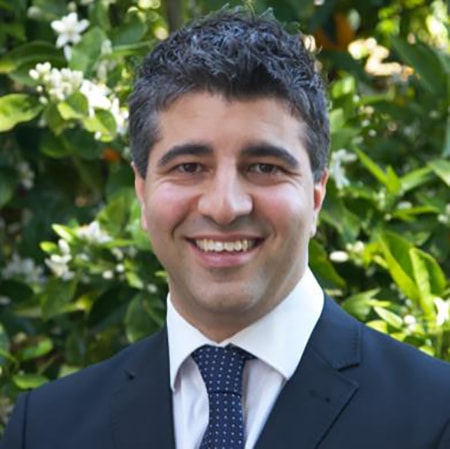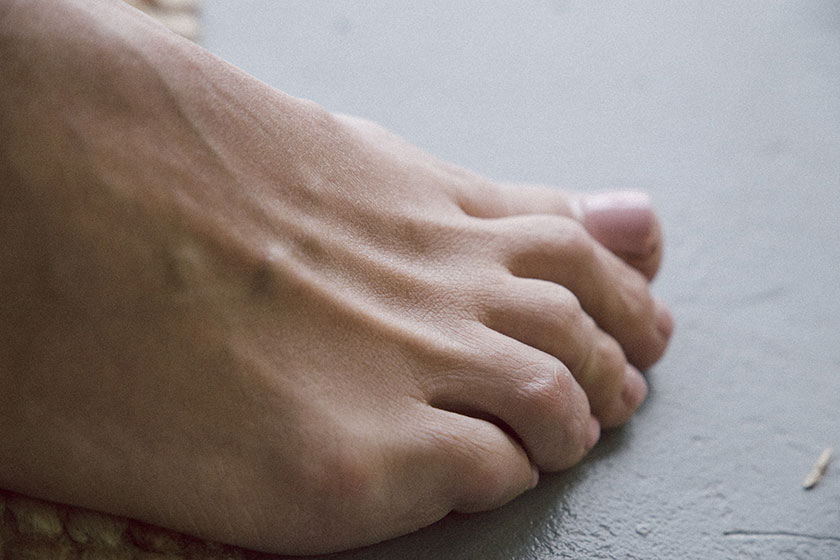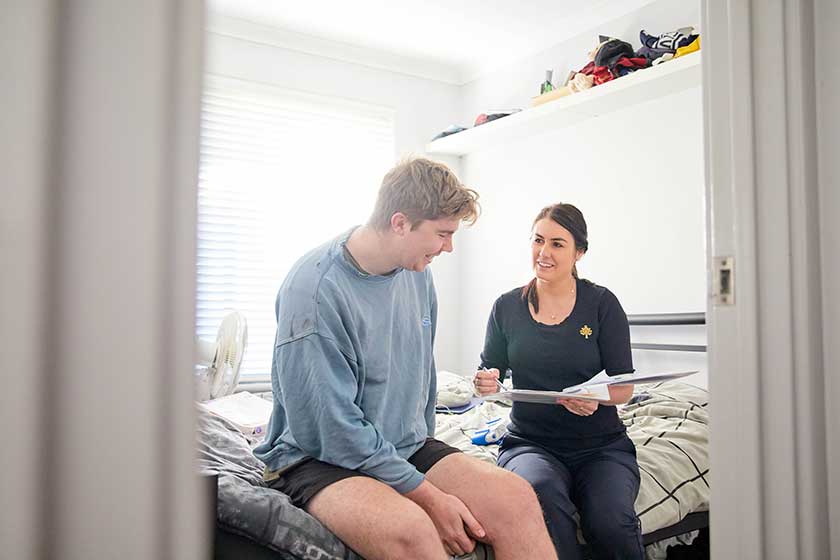Pain medications and analgesia
After surgery our priority is to make sure we are managing your pain well. This is an important part of your recovery.
Your anaesthetist will explain what medications you will be given before surgery and also check if you have any allergies.
After surgery, tell your nurse if you are experiencing any pain so they can adjust your medications to help enable your recovery.
Everyone experiences pain differently. We will adjust your medications to ensure they are working for you so that your recovery is fast and comfortable.
If you experience any unpleasant side effects such as nausea or vomiting, tell your nurse.
Eating and drinking
You may wake up with an IV drip in your arm. This drip gives you fluids until you are able to eat and drink normally.
We usually offer you something to eat on the same day after your surgery or the following day. Your first meal is usually something light so that your body gets used to processing food again.
Sometimes you may experience a loss of appetite, nausea or vomiting after surgery. Make sure you tell your nurse if you are feeling sick, so they can provide some medications to relieve your symptoms.
Going to the toilet
Sometimes we insert a urinary catheter so you do not have to get up out of bed to go to the toilet. You will usually be told if this is likely to occur before your surgery.
When you are able to move about, or when your bladder returns to your usual pattern, the catheter will be removed. This usually occurs day one after surgery for most orthopaedic procedures.
Constipation is also common after surgery. Tell your nurse if you experience constipation so they can give you some medications to make it easier to go to the toilet.
Caring for your wound
Depending on your surgery, the incisions your surgeon has made during surgery will be closed with stitches or staples and covered in a dressing.
These will stay in during your time in hospital. About 10 to 14 days after your surgery, once you have returned home, the stitches or staples will be removed either by a visiting nurse, your GP or in your surgeon’s rooms. Your stitches may be absorbable and all you may need is a removal of dressing. This is certainly my preference.
When the wound is dry and healed, you can start hydrotherapy, if advised by your surgeon. This is usually sometime around two weeks post surgery or later.
It is normal to have bruising and swelling, but speak to your nurse or surgeon if you have any concerns.
Pressure care
You might be surprised at how often you are asked to get up and out of bed after orthopaedic surgery. Not only is this is important to get your joints moving again, but it also is important to relieve pressure on your back, knees and buttocks so that you don’t develop any pressure injuries from laying too long in the same positions.
Your physiotherapist and nurses will help you move early after surgery. Remember to call them for help before you try to get out of bed (you don’t want to fall over).
Visitors
After surgery your immediate family is welcome to visit you in hospital.
We don’t recommend you have too many visitors as it can be very tiring and we want to make sure you are able to take part in all your early rehabilitation so that the surgery is as effective as possible.
Having visitors see you and help you when you return home is often a helpful alternative to having them come to hospital.

